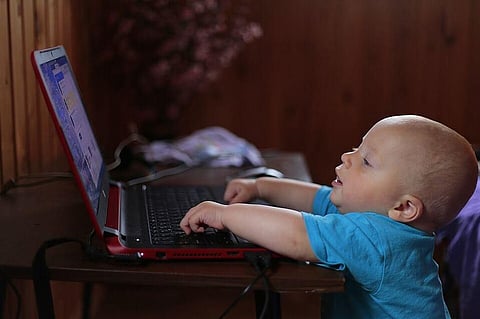Another investigation found that around 30 percent of newborn children less than six years are routinely presented to some type of screen time, (for example, the TV, cell phone or tablet) the normal being an hour for each day, said Dr Aishworiya Ramkumar, associate consultant at National University Hospital's (NUH) Child Development Unit. By the age of two, just about nine in 10 youngsters would have had consistent screen time. Of more noteworthy concern was poor parental mindfulness. Just 20 percent of the parents surveyed knew about expert rules with respect to screen time in kids, and 60 percent directed their youngsters' screen-time use consistently, said Dr Aishworiya.


